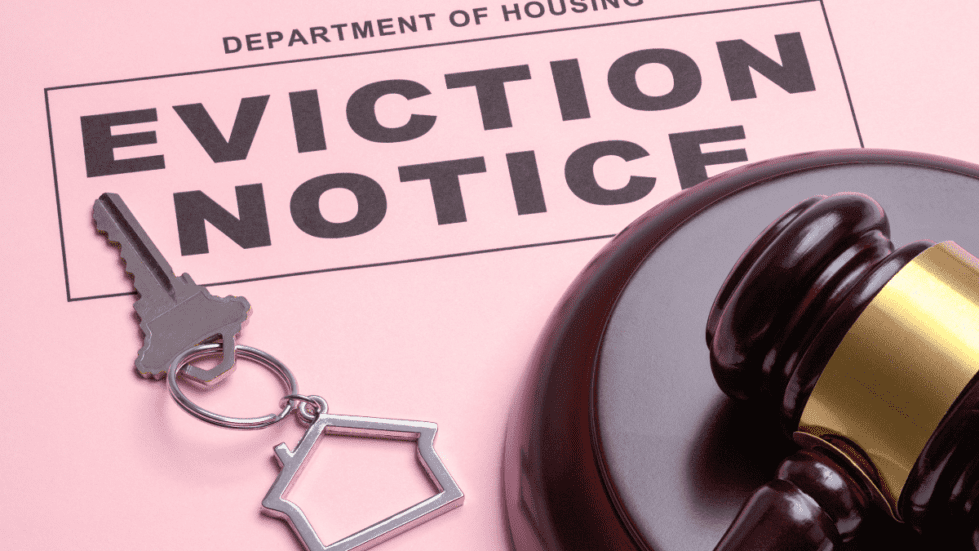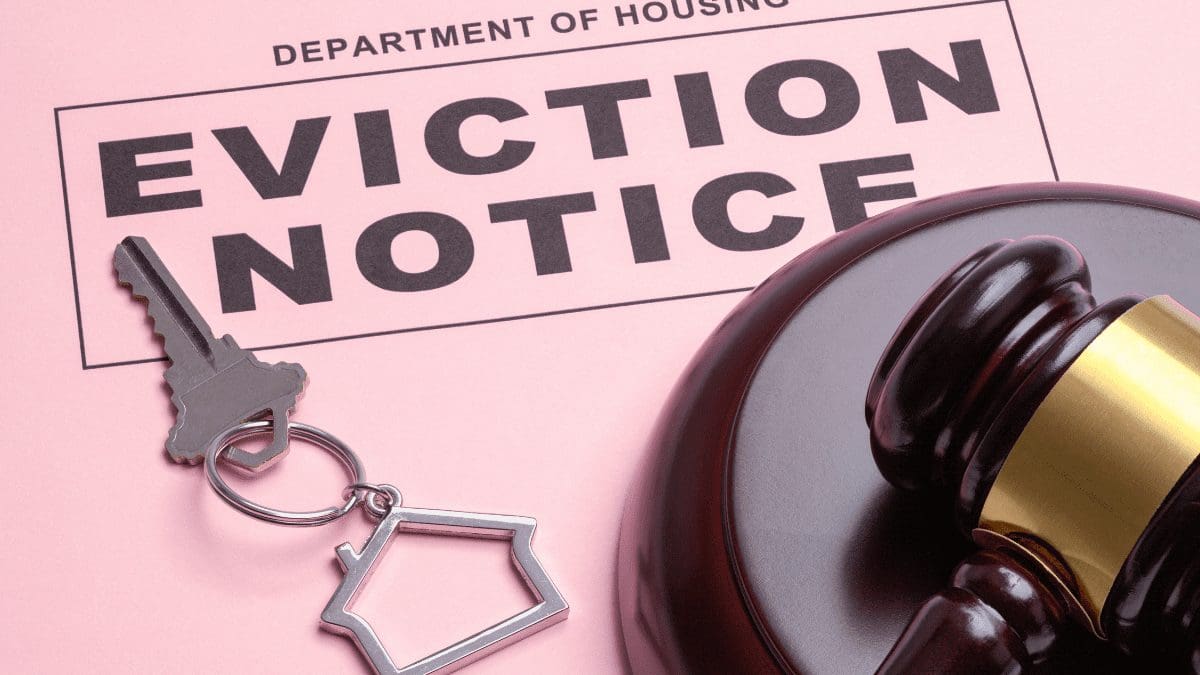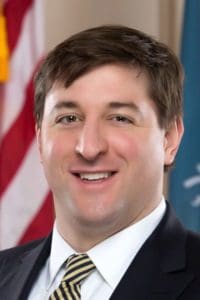Lawmakers and advocates say a new Delaware Supreme Court rule that allows tenants to be represented by non-lawyer advocates in eviction proceedings will create parity with landlords and mitigate some of the most harmful effects of housing insecurity.
Opponents, including the Delaware Apartment Association, the non-profit group that represents the interests of multi-family rental unit landlords, say efforts and money would be better spent in the form of direct rental assistance.
For the Supreme Court’s rule change to have its full intended effect depends on the passage and signing of a bill that’s been held up in the House of Representatives since before the legislature recessed in June 2021.
Senate Substitute 1 for Senate Bill 101, sponsored by Sen. Bryan Townsend, D-Brookside, would guarantee the right to counsel in landlord/tenant actions for households that fall below 200 percent of the federal poverty line.
“The bill tries to focus on those most in economic need,” Townsend said in an interview with Delaware/Town Square LIVE News. “The reason for it is because there’s a vastly disproportionate percentage of instances in which the landlord has legal counsel or an experienced advocate in court to represent the interests of the landlord, but the tenant does not have legal counsel at all.”
Indeed, according to the ACLU of Delaware, 86% of landlords retain legal representation in court eviction proceedings while, on average, only 2% of renters have representation.
“There’s a sort of inherent unfairness to that,” Townsend said. “If you happen to be one of the very few tenants who has access to counsel and you walk into court and you’re sitting there waiting for your proceeding to begin, and you look over and there’s another tenant without legal counsel — well, it’s very likely that the two of you are going to walk out of the courthouse with quite different outcomes.”
The ACLU similarly found that when renters are represented in court, they are twice as likely to remain housed.
While the legal disputes in question deal with landlords and tenants, Townsend argues that everyone pays the price when families face housing instability.
“Having stable housing is so key to all kinds of other stabilities and prosperities in our community, not just for the individual tenant, but the overall community,” he said. Public health and criminal justice concerns skyrocket when housing insecurity is entered into the equation, he said.
Debra Burgos, president of the Delaware Apartment Association, said in an interview with Delaware/Town Square LIVE News that her group doesn’t feel that Senate Bill 101 will prevent evictions.
“Most of the cases that we are dealing with in landlord-tenant cases are essentially nonpayment of rent,” Burgos explained. “In those kinds of cases, there’s really not much an attorney can do to prevent that. Housing and rental assistance are the best ways to keep someone who can’t pay their rent in their home.”
By extending the eviction process, Burgos fears tenants will be left with higher debts and higher judgments while landlords pay a price that, for many, can be financially ruining.
“Landlords, big and small, have mortgages, we have maintenance costs, we have utilities that have to be paid and that doesn’t go away because a resident isn’t paying their rent,” Burgos said. “That’s not something that I can tell the bank — ‘I can’t pay the mortgage this month because several people are waiting for their court date.’”
She said that the costs of even lengthier court proceedings could force landlords to increase rent or have less money to spend on maintenance.
“COVID has added a whole bunch of additional layers of expenses and costs for landlords that are often overlooked or minimized because of that concept that there’s unlimited funding,” Burgos said.
“We do our best to maintain safe and affordable housing, but we are impacted by so many different factors, whether it’s the clean water legislation that’s coming down the pike, when water or sewer bills increase — that’s just additional expenses that most landlords are having to take on.”
Senate Bill 101 would also bar landlords from filing for evictions when less than $500 is owed by the tenant.
That doesn’t mean landlords couldn’t seek to recover those costs, but they would not be able to evict a tenant over that debt.
There are exceptions, Townsend explained.
“You can’t keep doing that over and over and over again,” he said. “There’s a limited number of times over a few years period that you’re able to do that, and that’s trying to strike the fair balance between landlords and tenants where if you are a tenant that is constantly behind and constantly causing costs or uncertainties for the landlord, well, then that’s also unfair to the landlord.”
Burgos said landlords should not be forced into the position of “lending money” when they are trying to enforce a signed, legally binding contract.
“You are essentially forcing landlords into becoming lenders,” she said. “You are now required to lend out this money and you have no recourse to retrieve it, which really is problematic. We move people in, we sign a contract for rent and rent is due. Having the legislature come in and prevent a landlord from collecting all the rent that is owed under a contract is a major concern for us.”
Sen. Colin Bonini, R-Little Creek, voted against Senate Bill 101 when it was considered in the Senate.
Bonini said in an interview with Delaware/Town Square LIVE News that he voted against the bill because he’s worried about the precedent it sets. He’s not sure if it’s actually what’s best for tenants, and he’s afraid it disadvantages landlords, many of whom are not extraordinarily wealthy people.
“Are taxpayers going to be required to start providing legal counsel for every single private contract,” Bonini asked. “I think if nonprofits and good-hearted people want to provide representation for those folks, that’s fine. I just think mandating that taxpayers have to pay for it is a dangerous precedent.”
He’s also concerned that in some cases, eviction proceedings could become held up in courts for long periods of time during which tenants would continue accumulating back-rent to their own detriment.
“The assumption that adding attorneys to the mix lessens complexity or adds efficiency just doesn’t make any sense at all,” Bonini said. “Regardless of how well-intentioned, we need to be careful about what the real-world consequences are.”
The rule change comes as a backlog of eviction cases makes its way through Delaware courts following early-pandemic eviction moratoriums and a rocky rollout of federal rental assistance by the Delaware State Housing Authority.
With the CDC’s eviction moratorium having ended in August 2021, many experts and advocates expected that Delaware would see an immediate increase in eviction filings. That hasn’t panned out.
According to Eviction Lab, which tracks filings in Delaware and compares the data to pre-pandemic figures, since March 15, 2020, there have been 13,313 eviction filings — markedly less than the 18,000 filings that occurred in 2019.
John Whitelaw, advocacy director for the Community Legal Aid Society of Delaware, said the Supreme Court’s new rule will make the tenants’ chances of getting fair results better because “if you are represented, you do better.”
“That’s why this is important,” Whitelaw said. “Because it will allow tenants to be represented in a way that parallels how landlords are represented.”
Landlords have long been able to be represented by non-lawyer advocates in Justice of the Peace Courts thanks to Supreme Court Rule 57. That rule gives artificial entities — most commonly limited liability corporations — the ability to be represented by non-attorney advocates or Form 50 agents.
Landlords often set up LLCs to conduct their business and are therefore able to take advantage of Rule 57’s provisions.
“But tenants — in the residential sense as opposed to commercial sense — are never artificial entities and a landlord is never going to rent to a tenant as an artificial entity,” Whitelaw said. “So even though the provision is mirrored, it only could ever apply one way in reality, so the tenants either have a choice of representing themselves or getting a lawyer.”
That changes with Rule 57.1, which allows non-lawyer advocates to represent tenants free of charge to the tenant and under the supervision of a legal aid attorney.
“This is not just an invitation for anybody to go set up shop and say, ‘come to me and I’ll be your tenant representative in J.P. Court,” Whitelaw said. “It’s being effectively regulated to protect tenant interests and to make sure that they’re not subject to being exploited and abused.”
The non-lawyer advocates will be known as QTAs or qualified tenant advocates. Under the rule, to be a QTA one must be employed by one of the three legal aid agencies in Delaware, including the Community Legal Aid Society, the Legal Services Corporation of Delaware or Delaware Volunteer Legal Services.
The QTA may not charge a tenant for their services and must be qualified through a certification program designed by the legal aid agencies. Normal confidentiality privileges will remain, clients will have to certify that they agree to be represented and QTAs will be supervised by an attorney from the legal aid agency.
“We’re only going to send people who are qualified, and we’re not going to send them in every case,” Whitelaw said. “There are cases where you need to have a lawyer involved, either because the other side has a lawyer or they’re more complicated or messy, so we’re obviously going to be thoughtful and careful about when the QTAs get sent in.”
Whitelaw said he thinks the Supreme Court’s adoption of Rule 57.1 was a thoughtful response to a real need that will provide necessary representation in a financially efficient way.
That’s important as it relates to Senate Bill 101 which, according to its fiscal note, is expected to cost $3.2 million annually by the time it gets up and running.
That fiscal note, though, assumes attorney fees of $100 per hour for eight hours per client.
“Let me just be blunt about it — it is obviously much less expensive to have this work done by someone who isn’t an attorney in those cases where it’s appropriate,” Whitelaw said. “Lawyers cost more and that’s just the way it is right? The costs for an attorney are going to be higher than the costs for QTAs and so we’ll be able to provide more services through QTAs.”
In order to have its full effect, Whitelaw explained, the rule depends almost entirely on the passage of Townsend’s bill.
“If Senate Bill 101 doesn’t pass and when the money that is currently available to expand tenant representation ends, this will be of marginal value,” he said. “While this will make it more doable, absolutely, the big-picture problem will not get fully addressed until there is sufficient funding available so that the legal aid programs collectively have enough money to hire enough people to represent low- to moderate-income tenants who have eviction cases filed against them.”
The Community Legal Aid Society is “absolutely thrilled with the rule change,” he said. “This is an innovative move by the Supreme Court in the face of eviction crisis that has been around for a while and has really come to the public’s and policymakers’ attention throughout this pandemic.”
According to Eviction Lab, eviction filings in January 2022 were down 46% compared to the pre-pandemic average for the month of January.
However, “there are still way too many eviction cases being filed,” Whitelaw said. “Way too many people are getting evicted and there is an eviction crisis that existed before COVID that was absolutely exacerbated by COVID and is now under a spotlight.”
“Is this rule change going to fix the eviction crisis,” he asked. “No; the only thing that will fix the eviction crisis is a lot more affordable housing, obviously, but the Supreme Court can’t fix that problem.”
Townsend said that while Senate Bill 101 will help tenants fare better in court, it’s not at all designed to hurt landlords.
“Landlords have private property rights — there’s no doubt about that,” he said.
But Bonini said that while he believes Townsend’s motives are honorable, he doesn’t agree that Senate Bill 101 will help landlords.
“You know, landlords aren’t necessarily bad folks — they just want you to pay rent,” Bonini said. “Very rarely are the landlords trying to hurt the tenants. “
Burgos said that landlords are in the business of keeping tenants in their homes and, in most cases, only resort to eviction when it’s absolutely necessary.
“I want someone in their apartment, I want them paying rent and if there’s no lease violation problems or extenuating circumstances, I don’t want to evict them either,” Burgos said. “Ultimately, landlords have bills to pay too, so if they’re not able to pay rent, they do have to move forward.”
Bonini thinks that one unintended consequence of the legislation could be “massive consolidations wherein the only people who will be able to afford to rent homes are big corporate players,” he said. “We might be forcing small guys out of the market because they can’t afford all this litigation.”
Burgos said she hopes the legislature comes up with a “better solution” to the eviction problem.
“We really wish that this money was going towards rental assistance,” she said. “It’s really been a godsend through COVID for many of our residents to have that funding and eventually that will go away.”
Charlie Megginson covers government and politics for Town Square LIVE News. Reach him at (302) 344-8293 or [email protected]. Follow him on Twitter @cmegginson4.
Share this Post








